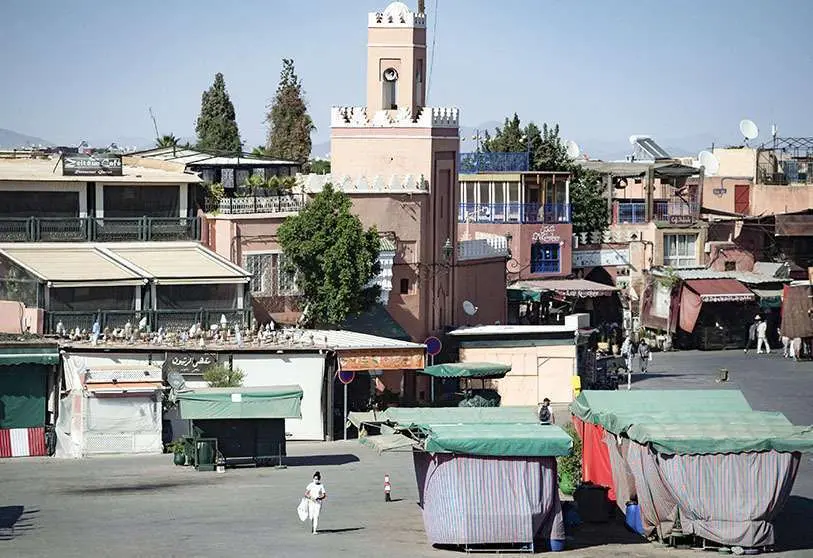La bicicleta, motor de cambio en Marrakech

Who said that the bicycle was a vehicle for the poor? Why are there no more bicycles circulating in a flat city like Marrakech? These questions were asked by the Dutch woman Cantal Bakker, but the most interesting thing was the answer.
Bakker, 30, has created "Pikala Bike" ("pikala" is the dialect for bicycle), a project to popularise two wheels in Marrakech. He is not afraid to take part in a man's world as he tries to make room for the cars and motorbikes that invade the city and fill it with smoke.
And because she is a dreamer, she says: "We want to show that cycling is a way of life, and you can pedal in the street with the same attitude as you drive a Range Rover".
"Pikala Bike, launched in 2016, aims to transform the city's inhabitants' concept of cycling so that they see it "as an effective, simple and chic option".
This is no small challenge. Bakker admits that most people who use a bike do so out of necessity because they can’t afford something better, which explains why there are so many “badly maintained bikes, which no one is proud to ride” on the street.
The project’s headquarters is a 500 square meter center based in the medina of Marrakech that houses small technical repair shops, vocational training and English teaching, in addition to a fleet of 150 bikes of all types.
The place is like a beehive: bicycles well arranged all over the space, technicians welding bicycle trailers, a group of girls around an office preparing the next awareness campaign for children.

The inspiration came to Bakker in 2015, when she visited Marrakech for the first time as a tourist and saw that it was not possible to discover the city by bike.
She finally got someone to lend her one: “when I started pedaling, Marrakech changed”.
Bakker, who studied Fine Arts, wanted to give other people the opportunity to share her experience because for her there is nothing comparable to “the freedom of the bicycle to discover a city”.
“That’s how Pikala was born, like a crush, like an inspiration,” she says.
To promote the bicycle, Bakker and her Moroccan colleagues try to create a “different energy” around this means of transport, with videos of famous people and foreign tourists as “mini ambassadors” of the two-wheelers.
“Our mission with Pikala is that the bicycle allows you to learn something, gives you the opportunity to work, and helps you in your mobility and your health,” she says.

Bakker’s project, which employs 30 young people, is not only beneficial for its ecological aspect, but also because it creates opportunities for training and work and contributes to social action in Marrakech, especially amid the coronavirus crisis.
“We have looked for another way to help the community and since the beginning of the lockdown in March we have developed a project to distribute food by bike. So far we have delivered 1,200 solidarity baskets,” she says.
This initiative consists of making its fleet of bicycles and its staff available, free of charge, to humanitarian support associations to distribute their aid to the most needy.
In addition, a total of 5,000 menus for homeless people living in the streets of Marrakech were also distributed over the last nine months.
Bakker is tireless: this week she is going to distribute 300 bicycles for students who live far away from school to ease the cost of transport, one of the main causes of school dropouts.
And if "Pikala Bike" is financed mainly through donations from associations, its founder is already thinking of her own sources of income to ensure the sustainability of the project and is already developing a home delivery network that will make it possible to do without motorbikes.
Bakker does not hide a major obstacle: lack of cycle lanes or specific infrastructure for cycling, but she is already in discussions with the city council to find solutions and already considering expanding the project to other cities such as Agadir or Rabat.










